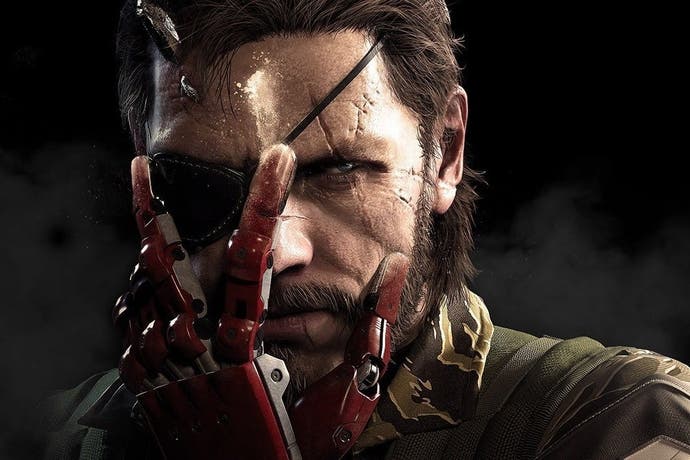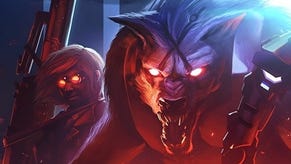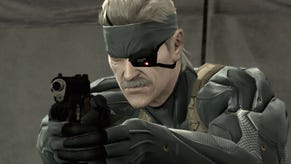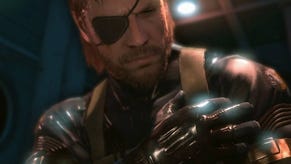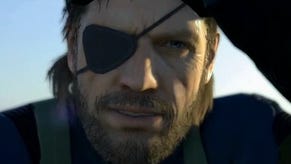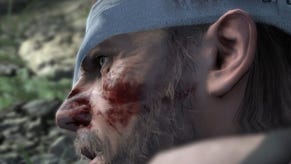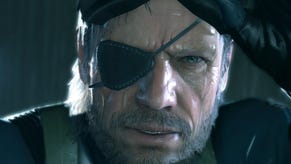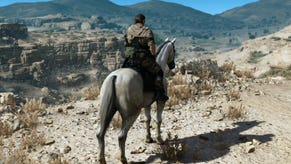The wolf in Snake's clothing: Metal Gear's twisted hero
Is Kojima's stealth series gaming's Fight Club?
There's a lot of reasons to be disappointed in Metal Gear Solid: The Phantom Pain's conclusion. In many ways, the game feels blatantly unfinished with plenty of plot threads left dangling and a twist that's haphazardly introduced when the game's final mission seemingly arbitrarily gets added to your docket. But one reason lots of fans are crying foul of Konami is because The Phantom Pain doesn't concretely complete Snake/Big Boss's arch into infamy.
This was supposed to be the story of a good man turning into a villain; Kojima's Revenge of the Sith, in other words. Instead, we spend dozens of hours watching the iconic character face off against a cartoon antagonist named Skull Face with a hilariously Kojima super villain plot (I think after 28 years of Metal Gear Kojima has earned the right for his name to be used as an adjective). If you were new to the series, you might not know that you're supposed to be an anti-hero at all.
This, incidentally, is my favourite aspect of The Phantom Pain's storytelling. You're playing as an insane war criminal, yet the game treats him like a brooding hero. This could be an accident, of course. After all, lots of video games inadvertently romanticise war, a concept succinctly mocked by video game scholar Ian Bogost in a New York Times article from 2010 where he said the theme behind most military shooters is that "war is horrible and badass."
But I don't think Kojima is in love with war. After all, the man did grow up in a country that remained pacifist for over 50 years after being ravaged during the second world war. Instead, I believe Kojima emphasises the "badass" parts of war - the guns, the torture, the iconic posturing - as a commentary for how people get swept up in the culture of devoting your life to murdering those who disagree with you.
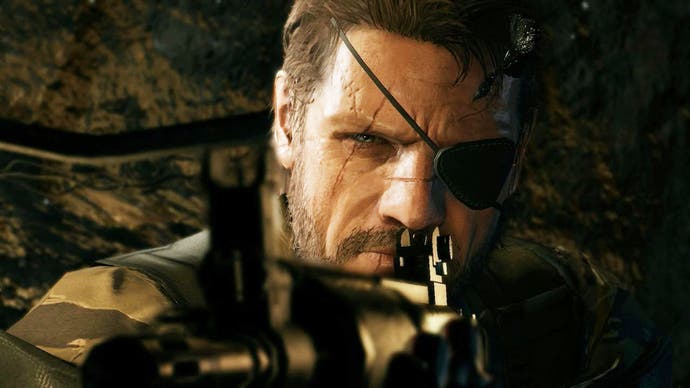
To explore this, we first need to look at the background of protagonist Big Boss, aka Venom Snake. In Metal Gear Solid 3 he was a US soldier who was betrayed by his government and forced to kill his mentor, a woman he greatly admired codenamed The Boss. After Uncle Sam branded her a traitor as a scapegoat to avoid going to war with Russia, Snake became disillusioned with the entire concept of nations.
Rather than be a pawn in someone else's game, he decided to build a private army, one who would fight for the highest bidder. This, he figured, was as good a reason to fight as any. Essentially he's Tyler Durden trying to transform the world into one giant military Fight Club. He simply enjoys combat because that's all he knows. As such, he wants to create a soldier's paradise where everyone is always at war because that would be totally badass.
We generally don't notice this, however, because the story is told from his point of view. On the surface, he's a likeable character. He stops giant robot dinosaurs! He fights a masked dude named Skull Face who's trying to kill billions! He even offers a particularly poignant eulogy for his fallen brothers at one point, delivered in the charismatically weary dulcet tones of Keifer Sutherland. And he looks great doing it! Clearly he's a hero!
He's also not a confrontational character, so he rarely steps out of line too far from the player's agency. The epitome of cool and collected, Big Boss doesn't lose his temper at anyone, creep over the half naked woman he befriends, or start fights. He calmly and quietly reacts to those around him and generally only gets his hands dirty in self-defence. He's not the one torturing people back at his base. That would be Miller and Ocelot. He's not the one building a giant nuclear weapon. That's Huey. He's not the one trying to kill Quiet on sight, even though he has more reason to eliminate her than any of the countless grunts he shoots. He is the one kidnapping hundreds of people and forcing them to work for him, only we don't bat an eye at this process because it's portrayed in jest via goofy balloons that whisk them away to the [outer] heavens.
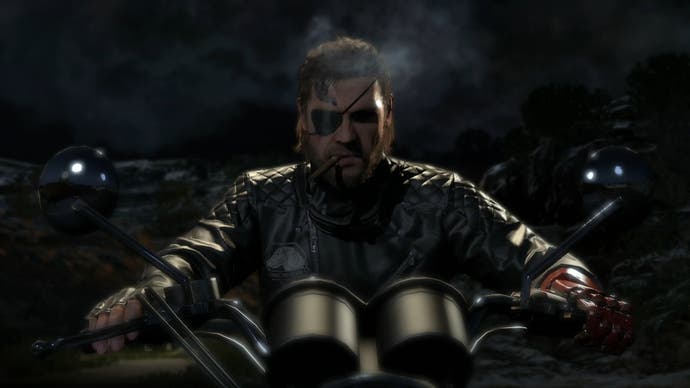
It doesn't hurt that the camera is so darn in love with him. Hideo Kojima, more than any other video game developer, knows how to make a character look cool. Snake - whichever version of Snake we're talking about - is always cut more like a kung fu master than a body builder. Strong, but not overly muscular, Kojima emphasises Snake's pretty looks as much as his sheer power. Even his less human characteristics like his shrapnel horn and metal prosthetic hand in The Phantom Pain look less demonic than gently ripped from Hellboy. Snake is less Schwarzenegger or Van Damme than he is Ryan Gosling or Tom Cruise. While everyone's tastes are different, it seems clear that Snake is designed to be something of a sexy beast.
This deification of Snake is important because it makes the player identify with this character when we really shouldn't. We go along with him because he looks like a solid dude who gets to do awesome stuff. He and his amazingly named Diamond Dogs army get to live out the testosterone-fueled machismo fantasy they'd been eating up since day one. They get to wear cool gear, handle cool weapons, and grumble cool lines like "Cipher sent us to hell. But we're going even deeper." Whether intentional or not, Kojima's stylised, fetishistic view of military life seems to be saying "This is why people go to war: to enact the media that excited them so much."
In other words, Snake doesn't have to do anything overtly evil for us to determine that he's not exactly the nicest man. It's just that so many war games put the player in the role of a psychopath that we simply take his egregious actions for granted.
Hideo Kojima may detest war, but he's simultaneously in love with the cinematic flair of it all. And who wouldn't be? Helicopters, horses, explosions, jeeps, sandstorms, sniper standoffs, strategic battle plans and desperate people in trying times are all rife with captivating imagery. It seems that Kojima's philosophy is that war is hell, but war in video games is heaven. By framing the game around an unreliable narrator, Kojima is able to have his "horrible and badass" cake and eat too. Snake, like Tyler Durden before him, is an idea - and an initially alluring one at that. But upon closer examination, his will is not one to be emulated.
